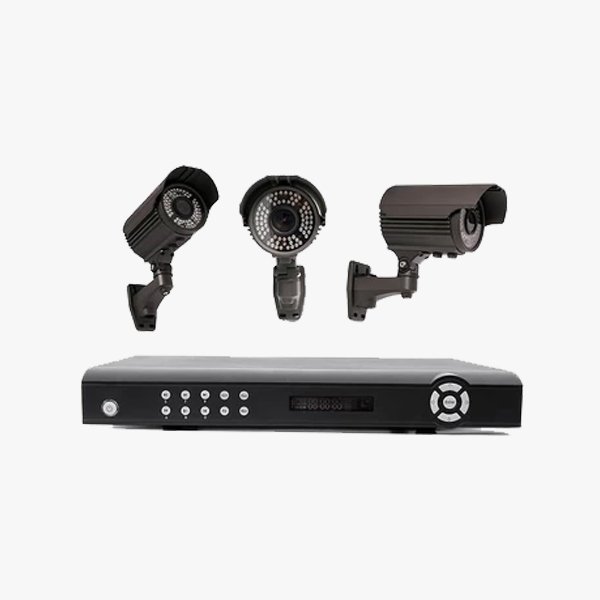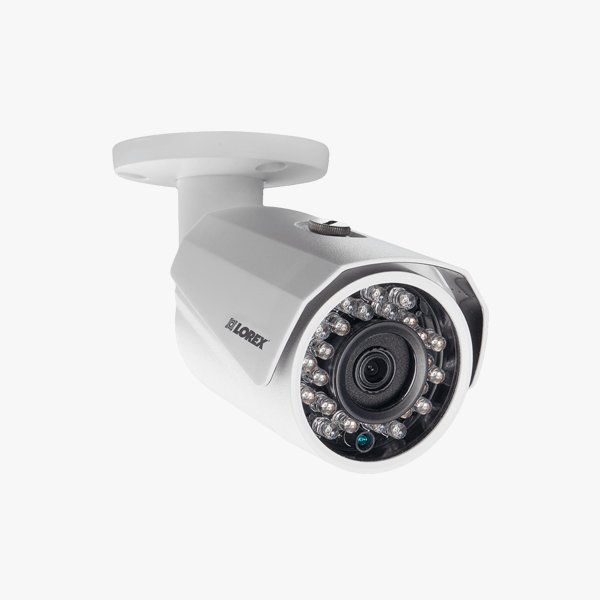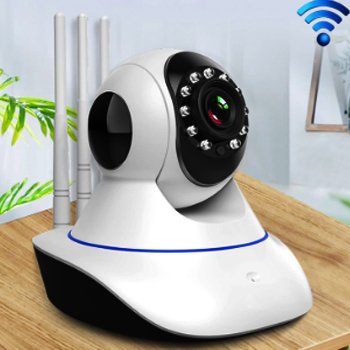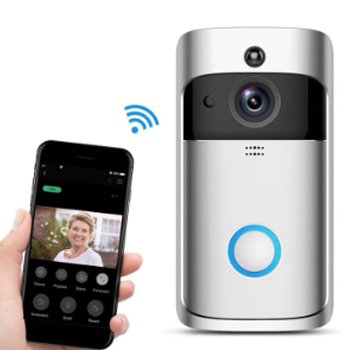Description
A CCTV Camera (Closed-Circuit Television Camera) is a video surveillance device that captures and transmits video footage to a specific set of monitors or recording devices. CCTV cameras are commonly used for security and monitoring purposes in both residential and commercial settings.
Key Features of CCTV Cameras:
Video Quality:
Standard Definition (SD): Older CCTV cameras may capture video in standard definition, which is lower resolution but still adequate for basic monitoring.
High Definition (HD): Modern CCTV cameras often offer HD resolution (720p or 1080p), providing clearer and more detailed images.
4K and Ultra HD: Some advanced CCTV systems offer 4K resolution, delivering ultra-high-definition footage ideal for critical security applications.
Types of CCTV Cameras:
Dome Cameras: Named for their dome-shaped housing, these cameras are typically mounted on ceilings and offer 360-degree coverage. They are often used indoors and are less obtrusive.
Bullet Cameras: Cylindrical and typically wall-mounted, bullet cameras are used for outdoor surveillance and often have a longer range than dome cameras.
PTZ Cameras (Pan-Tilt-Zoom): These cameras can be remotely controlled to pan, tilt, and zoom, offering flexible monitoring of large areas.
Box Cameras: These are traditional CCTV cameras with a rectangular shape, often used in environments where a specific lens or enclosure is required.
Wireless CCTV Cameras: These cameras connect to the recording system via WiFi, reducing the need for extensive cabling.
Infrared (IR) Night Vision:
Many CCTV cameras are equipped with infrared LEDs, allowing them to capture clear video in low-light or complete darkness. This makes them ideal for 24/7 surveillance.
Motion Detection:
Modern CCTV systems often include motion detection features, which can trigger recording or alerts when movement is detected within the camera’s field of view.
Field of View:
Depending on the lens used, CCTV cameras can have different fields of view. Wide-angle lenses cover a broader area, while narrower lenses are better for focusing on specific points.
Durability and Weatherproofing:
Outdoor CCTV cameras are typically weatherproof and designed to withstand harsh conditions. They often have an IP (Ingress Protection) rating, indicating their resistance to dust and water.
Storage Options:
DVR (Digital Video Recorder): Traditional CCTV systems store footage on a DVR, which records video from analog cameras.
NVR (Network Video Recorder): For IP-based CCTV cameras, an NVR is used to store digital footage, often with better image quality and more advanced features.
Cloud Storage: Some modern CCTV systems offer cloud storage options, allowing for remote access to recorded footage.
Connectivity:
Wired Systems: Traditional CCTV cameras are connected to the recording device via coaxial cables.
Wireless Systems: Wireless CCTV cameras connect via WiFi or other wireless protocols, offering easier installation.
Integration with Other Security Systems:
CCTV cameras can be integrated with alarm systems, access control systems, and other security devices to provide a comprehensive security solution.
Remote Viewing:
Many CCTV systems offer remote viewing capabilities, allowing you to access live footage or recordings via a smartphone, tablet, or computer from anywhere with an internet connection.
Applications of CCTV Cameras:
Home Security: Monitor entrances, driveways, and other areas around the home for potential intruders or suspicious activity.
Business Surveillance: Used in retail stores, offices, and industrial sites to deter theft, monitor employees, and ensure the safety of the premises.
Public Safety: CCTV cameras are deployed in public spaces like streets, parks, and transportation hubs to enhance safety and prevent crime.
Traffic Monitoring: Cameras installed on highways, intersections, and toll booths to monitor traffic flow and capture violations.
Considerations When Choosing a CCTV Camera:
Purpose: Determine whether you need the camera for indoor or outdoor use, and whether it will be used for general surveillance or specific monitoring.
Resolution: Higher resolution cameras provide better image quality, which is essential for identifying faces, license plates, or other details.
Lighting Conditions: Consider whether the camera will need to operate in low-light conditions and choose one with adequate night vision capabilities.
Installation: Decide if you want a wired or wireless system, and consider the ease of installation and ongoing maintenance.
Budget: CCTV cameras come in a wide range of prices, so consider your budget and prioritize features that are most important for your needs.
If you need help selecting a specific type of CCTV camera or setting up a surveillance system, feel free to ask!








Reviews
There are no reviews yet.